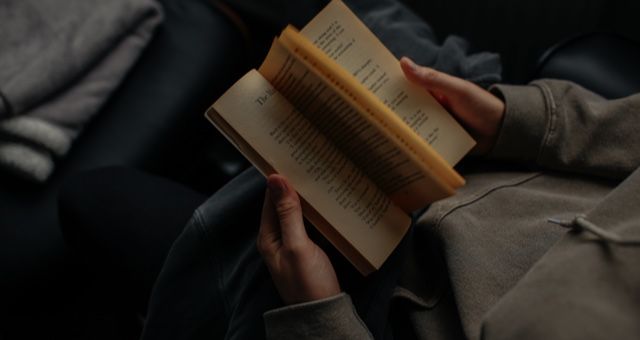
Why I Always Read the Acknowledgements
We’ve probably all claimed to have read a book “cover to cover” at some point. I certainly have. But what do we really mean when we say that? Did we actually read all of the words on each page? The dedication? The epigraphs? The author’s note? I will admit, I don’t usually read the advanced praise blurbs. I will likely skip the bibliography or the note about the font. Sometimes I will even ignore the author’s biography. But I always read the acknowledgements section.
I understand that the acknowledgments can seem dull. After all, the vast majority of readers will have no personal connection to any of the people who are mentioned there. It can feel a bit like being a plus one at someone’s high school reunion and spending the whole night listening to your date reminisce about people you don’t know and memories you don’t share. But this is where I remind myself that sometimes it’s not about me. (Shocker.)
Reading the acknowledgements is a way for me to show respect to the author. When an actor wins an Oscar or a musician wins a Grammy, we expect them to use their acceptance speech to say thank you. Even athletes who are interviewed after a big win will often take a moment to give credit to family, teammates, coaches, or even God.
The acknowledgements also reveal something about the author. Who they choose to acknowledge and how they write about them reveals both the author’s personality and their values. Part of getting to know someone is getting to see how they interact with their family and friends. For me, reading the acknowledgements is a way for me to glimpse the author as a person, not just as an artist.
Perhaps the biggest reason that I read each and every name in the acknowledgements is to honor and affirm the work of the many people who gave of themselves to bring the book in my hands into being. None of us exists in a vacuum. Creativity is always a collaborative process, whether directly or indirectly. Sometimes this means actually creating alongside someone else, sharing ideas and offering feedback. Sometimes it’s the collaboration of one person shouldering another’s responsibility for a while to give them the margin they need to create. It’s that indirect collaboration in particular that often goes overlooked.
Finally, I find that reading through the acknowledgements is a way to practice mindfulness. A list of names is more than a series of meaningless letters and syllables. Each name represents an individual with a unique identity, personality, goals, and dreams. The fact that the author has taken the time to list these people by name is enough for me to slow myself down and acknowledge their humanity. When I am tempted to skip over the acknowledgements, I ask myself, “What if it was my name on the list?” What if it was yours?
If you’ve never thought about reading the acknowledgements before, I hope this sparked some interest. Or maybe you’ve read this and rolled your eyes because I came off as a pretentious snot. (I mean, I hope not. But it’s possible.) Either way, I hope the next time you finish a book, you take those two extra minutes to read the acknowledgements.











